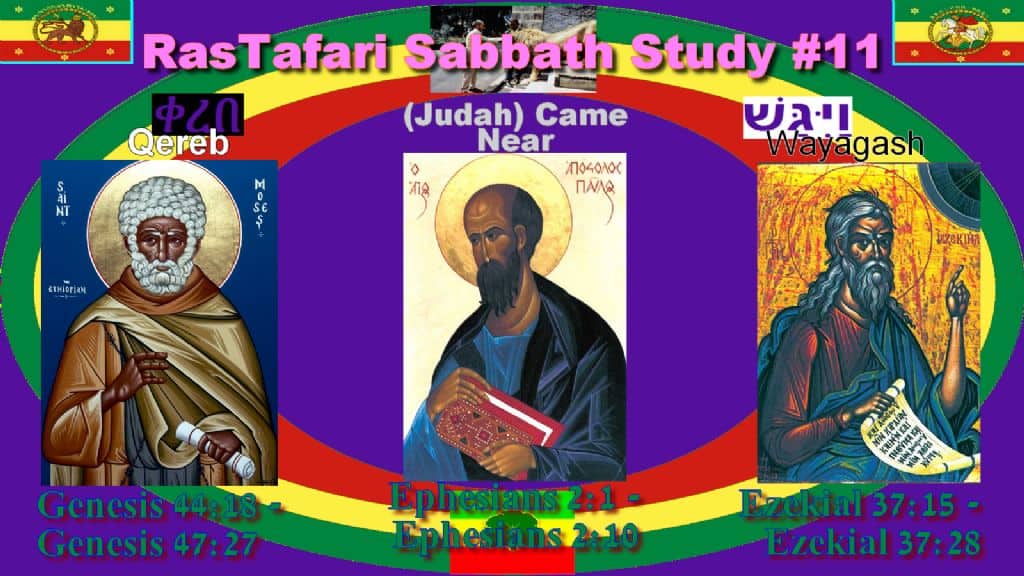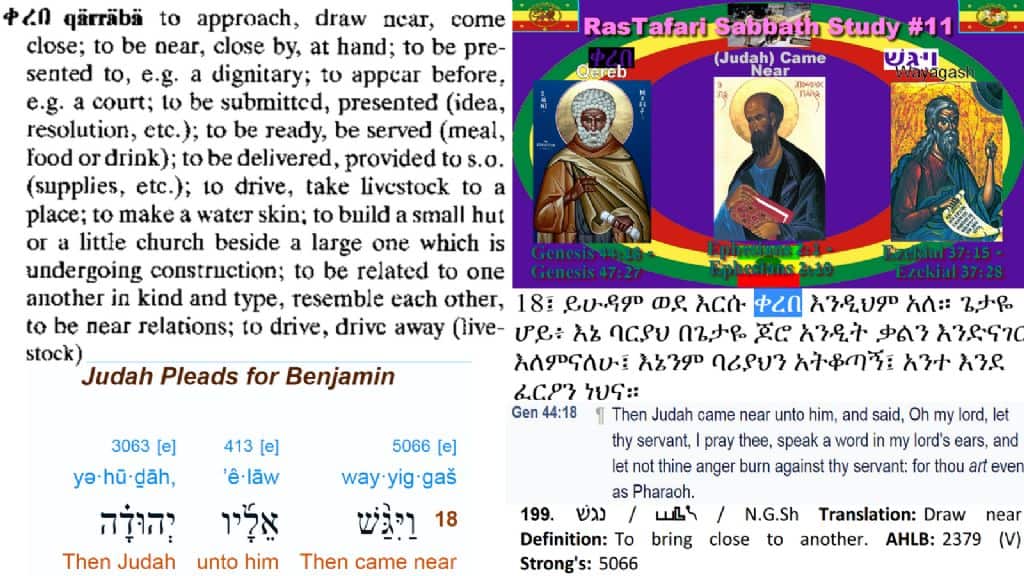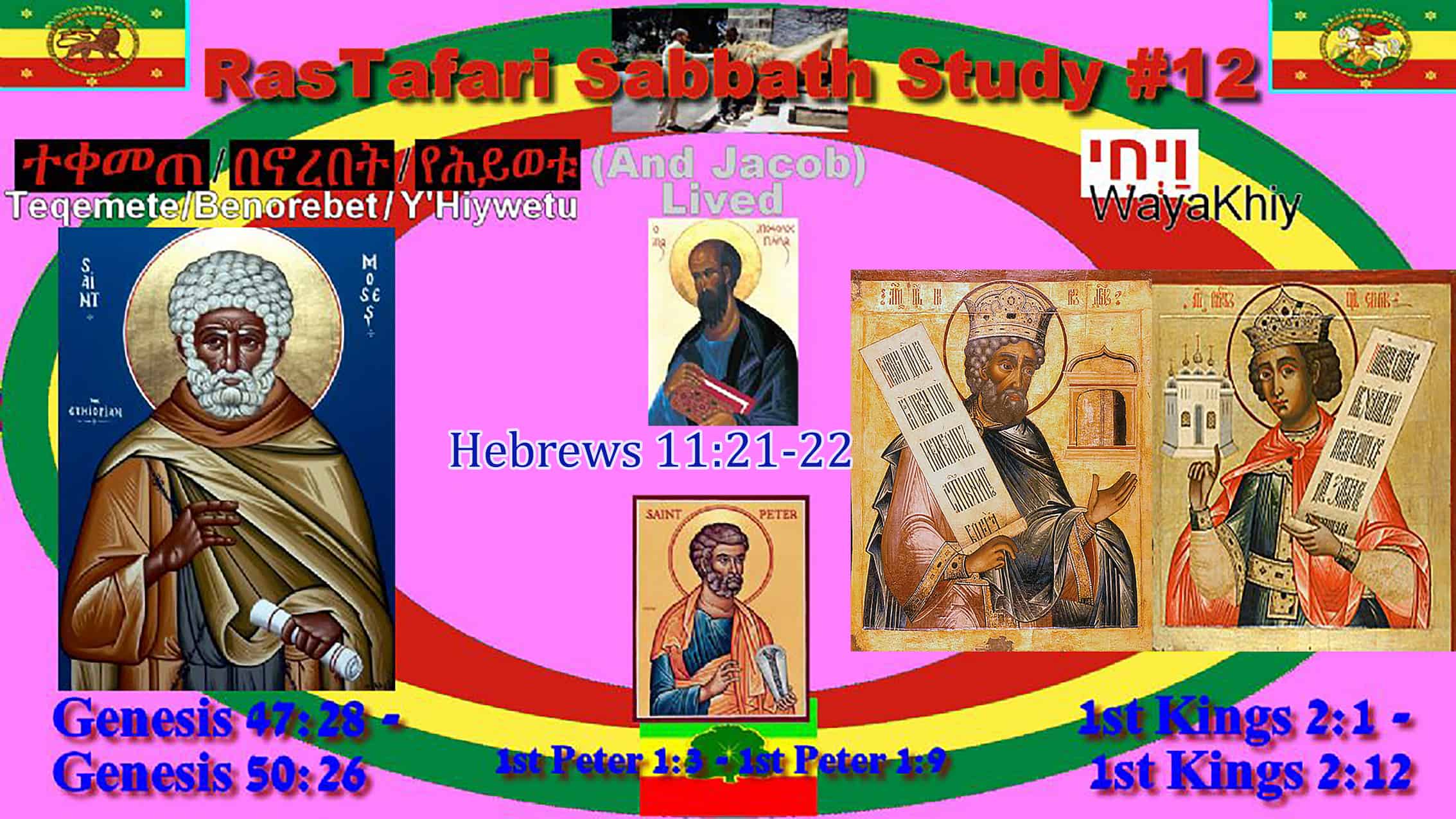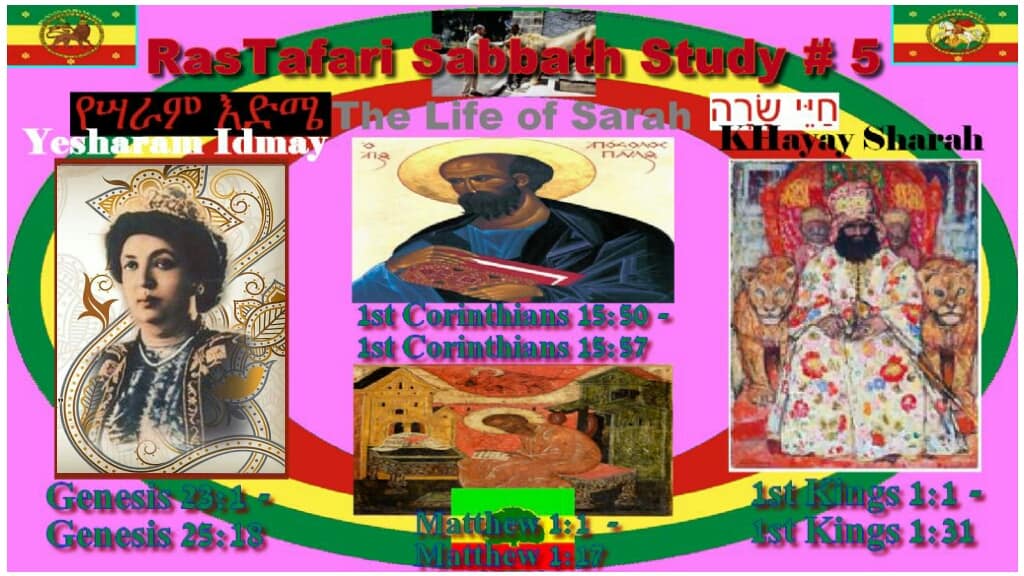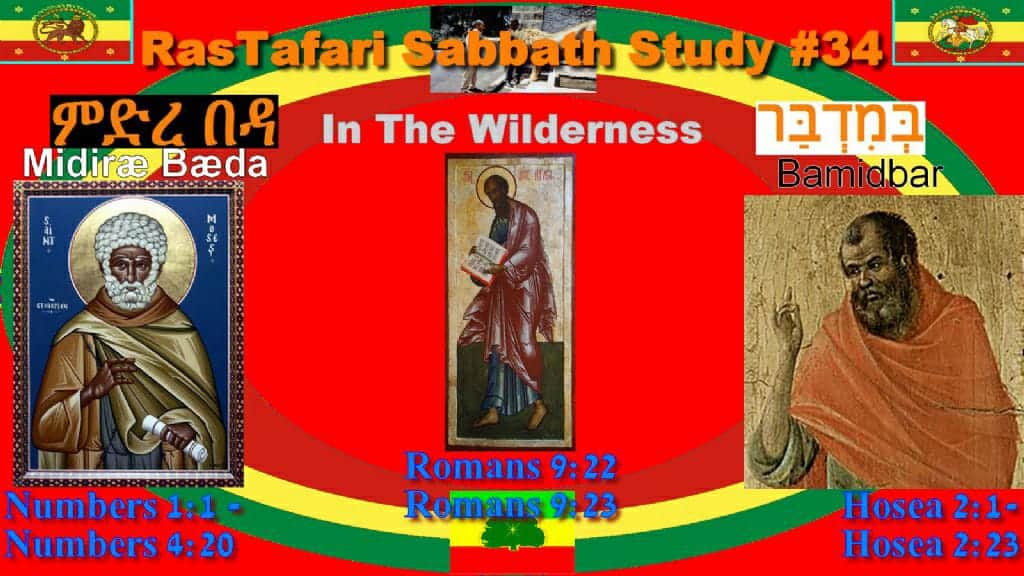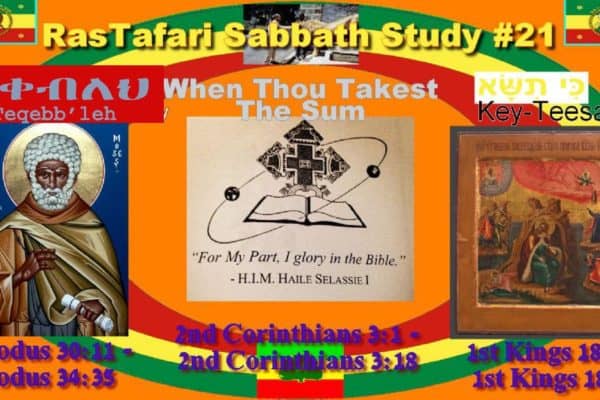This Week's Portion #11
Vayigash | ויגש | "And he drew near (He approached)" ቀረበ | Q’errebe
*For a PDF version of All the Torah Portions Schedule, click here to download!
2. Prophets Reading
Ezekiel 37:15-37:28
3. New Testament Reading
Ephesians 2:1-10
Portion Outline - TORAH
- Genesis 44:18 | Judah Pleads for Benjamin's Release
- Genesis 45:1 | Joseph Reveals Himself to His Brothers
- Genesis 46:1 | Jacob Brings His Whole Family to Egypt
- Genesis 46:28 | Jacob Settles in Goshen
- Genesis 47:13 | The Famine in Egypt
Portion Outline - PROPHETS
- Ezekiel 37:15 | The Two Sticks
Portion Study Book Download & Summary
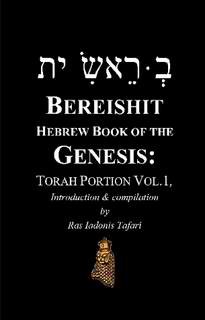 BEREISHIT Hebrew Book of Genesis - Torah Portion Vol.1 (FREE PDF)
BEREISHIT Hebrew Book of Genesis - Torah Portion Vol.1 (FREE PDF)
The eleventh reading from the book of Genesis is named Vayigash (ויגש), which means “and he came near.” The title comes from the first verse of the reading, which says, “Then Judah [came near] him” (Genesis 44:18). The portion begins with the dramatic unveiling of Joseph’s true identity and his reconciliation with his brothers. It then proceeds to tell the story of the migration of Jacob’s family to Egypt and the rest of the famine years. This Torah portion begins to set the stage for the Egyptian captivity of the sons of Jacob.
Portion Commentary
Life's Hardships
Thought for the Week:
Joseph did not retaliate. Instead, he broke the cycle by offering complete forgiveness. He told his brothers not to be remorseful for selling him to Egypt. How was Joseph able to offer his brothers such a gracious and total pardon? He did so on the basis of his confidence in God’s goodness. He saw that, though the brothers had meant his sale into slavery for evil, God meant it for good. Everything had worked according to God’s plan and wisdom.
Commentary:
Then Joseph brought his father Jacob and presented him to Pharaoh; and Jacob blessed Pharaoh. (Genesis 47:7)
When Pharaoh saw Jacob, he was amazed at how old the man looked. He dispensed with any pleasantries and immediately asked him, “How many years have you lived?” (Genesis 47:8).
The years had worn heavily on Jacob. For twenty years he had served Laban. “By day the heat consumed me and the frost by night, and my sleep fled from my eyes,” he had complained to Laban (Genesis 31:40). He was harried by four wives, and he had lost the only wife he had ever wanted to an early grave. He had spent more than twenty years inconsolably mourning the death of his beloved son Joseph. No wonder he looked old. Add to all that, he was 130 years old when appeared before Pharaoh.
Jacob replied, saying, “The years of my sojourning are one hundred and thirty” (Genesis 47:9). Notice that Pharaoh asked about the years of his life. Jacob replied speaking of the years of his “sojourning” instead of the years of his life. Rashi explains that all his life, Jacob had lived as a stranger and sojourner in other people’s lands. Born in Canaan, the land of the Canaanites, he lived as a stranger in hope of the Abrahamic inheritance. In Aram he lived as a stranger awaiting his opportunity to return to Canaan. Finally he had come to Egypt, where he planned to live out his days as a stranger in a foreign land. The writer of the book of Hebrews reminds us that the patriarchs Abraham, Isaac and Jacob were all “strangers and exiles on the earth” (Hebrews 11:13). They were “seeking a country of their own ... a heavenly one” (Hebrews 11:14–16). The writer of the book of Hebrews does not mean just the land of Canaan. He is speaking of the heavenly Jerusalem. He says, “[God] has prepared a city for them” (Hebrews 11:16).
This explains why Jacob referred not to the years of his life but to the years of his “sojourning.” Though he spent 130 years as a stranger on earth, he still anticipated a homecoming when he would enter the City of God and be rejoined to his fathers, Abraham and Isaac. Though the years of his sojourning were soon to end, the years of his life had just begun.
Jacob continued by complaining to Pharaoh about his life. “Few and unpleasant have been the years of my life, nor have they attained the years that my fathers lived during the days of their sojourning” (Genesis 47:9). To us, it seems strange to imagine a man 130 years old bemoaning a short life. But his grandfather Abraham had lived to 175. His father, Isaac, had lived to 180. Pharaoh was astounded at these amazing ages. Jacob was the oldest man he had ever met.
The sages criticize Jacob for complaining to Pharaoh and calling his years few and unpleasant. They imagined a humorous story whereby God transforms Jacob’s complaint into a self-fulfilling prophecy. In the story (which is called a midrash), God was listening to this complaint. He replied as follows:
So you call your years few and unpleasant? I gave you the covenant blessings, saved you from Esau and Laban, returned Dinah, Joseph, Simeon and Benjamin to you, prospered you and saved your family from famine, yet you complain about your life! I will take the thirty-three words spoken in those two verses and deduct them from your years. Then your years will indeed not reach those of your fathers. 1
What does this mean? Another math game. There are thirty-three Hebrew words in Genesis 47:8–9. Jacob lived to the age of 147, which is thirty-three years short of his father’s lifespan of 180. God deducted one year from his life for each of the Hebrew words in those two verses of Genesis. Obviously, this story is not meant to be taken literally. Its whimsical style is characteristic of the sages and the midrash.2 While teachings like this are not literally true, they always teach some deeper truth. In this case the midrash has recognized that it was inappropriate for Jacob to complain about his life. In reality, he had received great blessings. He did not know how many years he had left to live. For all he knew, he might have yet outlived his forefathers. To a certain extent, our words create our own reality. At the very least, our words and attitudes color the reality we must live in. How we respond to life’s hardships determines how much of a toll those hardships will take on us.
Middot U’Mitzvot (Character and Deeds)
Covetousness
Joseph sent the brothers back to Canaan laden with gifts. Remember that his original conflict with his brothers had been exasperated by the fancy coat of many colors. Now Joseph gave them each a princely garment from the royal cloth of Egypt. He gave each brother a change of clothing, but he gave Benjamin five changes of clothing. Why would he do the same thing his father had done? Perhaps it was to test their hearts as they once again see one of their brothers favored as Joseph was.
God forbids covetousness. The prohibition against coveting is one of the Ten Commandments. It is the only commandment that legislates a feeling. Whereas the other commands prohibit specific behaviors and actions, the tenth commandment prohibits a thought of the heart. A person is forbidden from looking upon another person’s possessions with longing.
You shall not covet your neighbor’s house; you shall not covet your neighbor’s wife or his male servant or his female servant or his ox or his donkey or anything that belongs to your neighbor. (Exodus 20:17)
Covetousness lies at the root of a great deal of unhappiness and human suffering. To covet what is not ours is an affront to God, who provides us with all that we need according to our need. Covetousness is a complaint against Him.
Let us yield obedience to His excellent and glorious will; and imploring His mercy and loving-kindness, while we forsake all fruitless labors, and strife, and envy, which leads to death, let us turn and have recourse to His compassions. (1 Clement 9:1)

